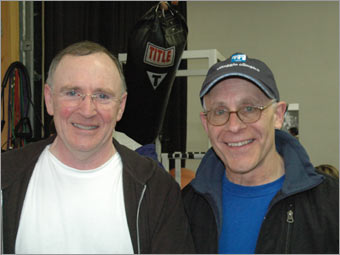Previous occupation: Chief Risk Officer at FleetBoston
Age at retirement: 58
Making new connections is also important in discovering your worth outside of work. One of the great non-monetary benefits of a full-time job is the wellspring of friendships you develop with people who have a pretty good understanding of what makes you tick. It's a benefit that most of us take for granted. According to a 2006 study by Ameriprise Financial, Age Wave and Harris Interactive, losing those social connections is the most unforeseen difficulty of retirement. Just 13% of pre-retirees say it will be the hardest aspect to deal with, but once out the door, 22% report this loss as the greatest adversity during the transition.
After Paul Hogan retired as Chief Risk Officer at FleetBoston in 2003, there was a moment, while he was checking his email, when he realized it had been a few days since he'd received anything from friends at the office. Retirement, as far as he was concerned, was nothing short of wonderful. "But the one downside is the loss of longtime relationships," he says. "I do miss them."
Hogan resisted the temptation to hole up. Instead, like any good executive who understands the art of networking, he proactively filled his life with new relationships. He kept in touch with people he met on travels to Italy and Tanzania. He became president of the local beach association. At the suggestion of an old friend from Fleet, he volunteered to help out with an artist's community. He also reaches out to other retirees. "When you have to create your own network," he says, "It helps to talk to people who have already gone through it."

